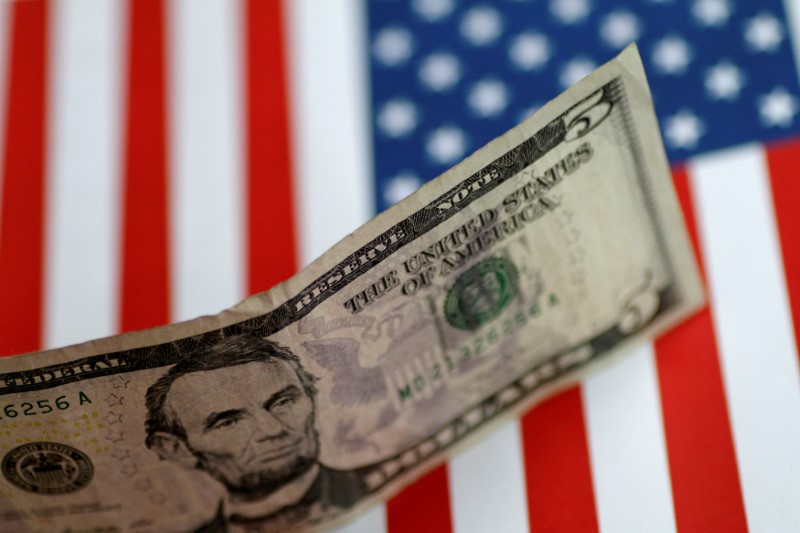By Sam Forgione
NEW YORK (Reuters) - The U.S. dollar hit a more than one-week low against the euro on Monday after weaker-than-expected economic data fueled doubts about the Federal Reserve's interest rate hike timeline, while caution ahead of speeches from central bank officials limited the move.
The Commerce Department said non-defense capital goods orders excluding aircraft, a closely watched proxy for business spending plans, dropped 0.2 percent in May, the largest decline since December.
Economists polled by Reuters had forecast these so-called core capital goods orders rising 0.3 percent last month.
The report added to growing worries that an acceleration in economic growth in the second quarter may not be as robust as expected. Recent data on retail sales, manufacturing production and inflation have given pause and housing data has been mixed.
Those worries have stoked doubts that the Fed will be able to follow through on its plan to boost interest rates one more time this year and three times next year.
The durable goods data "is certainly is a small reminder of other pieces of more important data that haven’t been particularly strong," said Richard Scalone, co-head of foreign exchange at TJM Brokerage in Chicago.
"The dollar has lost a bit of its appeal because of the fact that many market participants think that the Fed is less likely to raise rates."
The euro <EUR=> rose against the dollar to $1.1219, its highest since June 15, and was last up 0.2 percent at $1.1214.
The dollar index, which measures the greenback against a basket of six major rivals, was only down 0.1 percent at 97.165 (DXY) as anticipation of comments from European Central Bank chief Mario Draghi on Monday and a speech from Fed chair Janet Yellen on Tuesday mitigated the dollar's losses.
"We’ll know more from Yellen tomorrow," said Thierry Albert Wizman, global interest rates and currencies strategist at Macquarie Group Ltd in New York. "Traders are still split on what the Fed is going to do."
While the dollar was slightly higher against the yen at 111.38 yen <JPY=>, it dipped against emerging market currencies such as the Mexican peso and the Brazilian real.
Scalone of TJM Brokerage said traders were buying emerging market currencies for their higher yields given low trading volatility.

"We are unfortunately in the midst of the summer doldrums," he said.